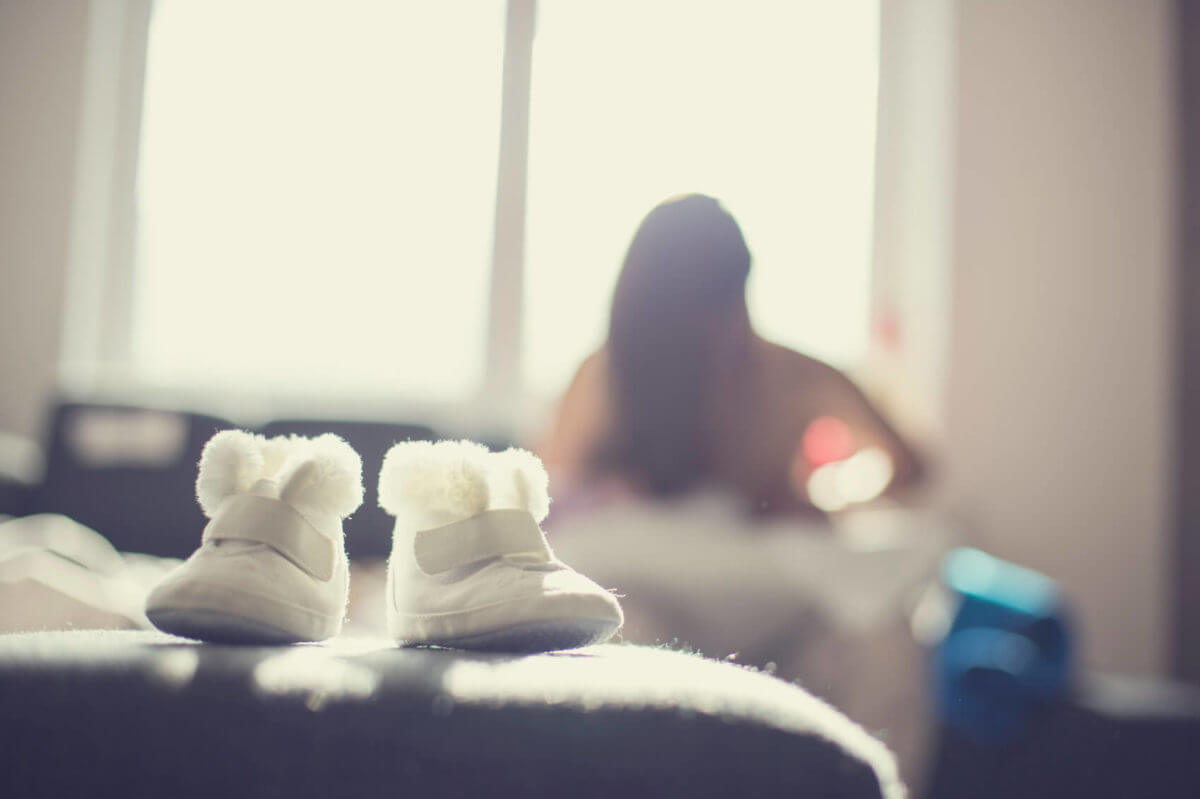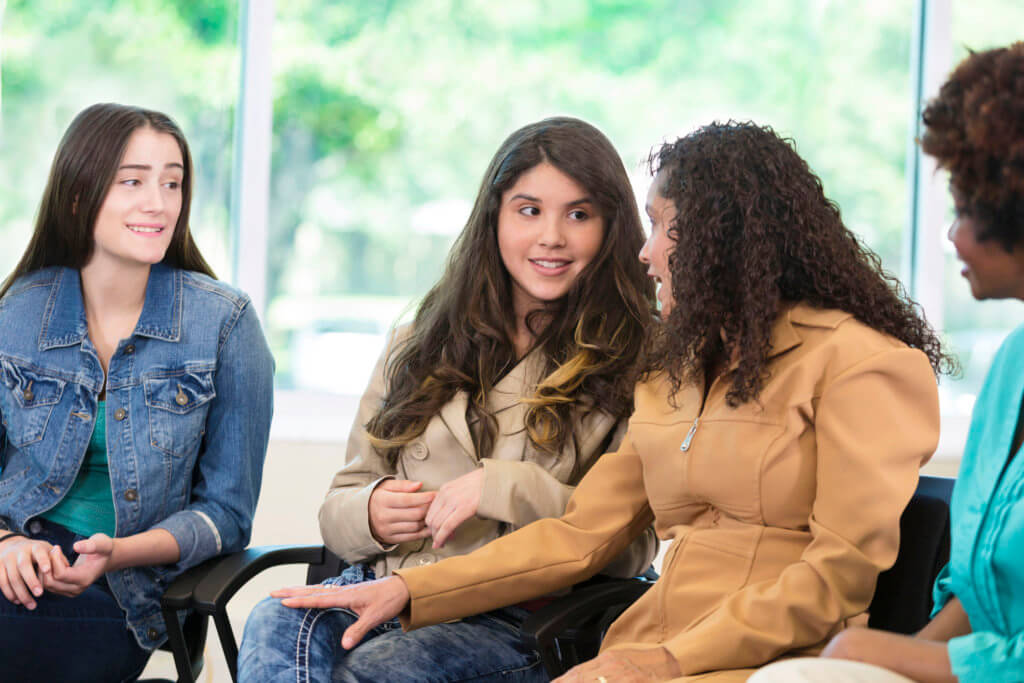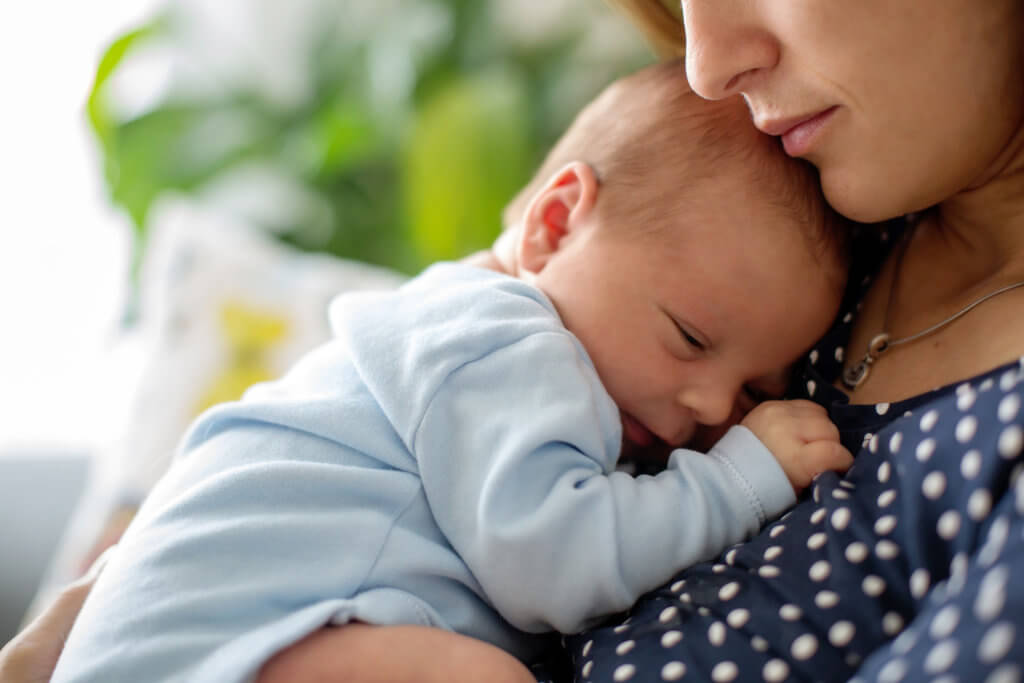Placing a child for adoption is a very emotional and complicated decision, one that will affect the rest of your life in various ways. Although many prospective birth mothers understand the potential for grief after “giving up” a child for adoption, the strength of emotions during the adoption process is sometimes overlooked or underestimated. Understanding how it feels to go through the adoption process can help prepare you for some of the emotions of “giving a baby up” for adoption.
Some prospective birth mothers may feel that since they are choosing adoption for their baby, they must deny or bury emotions of loss or grief. This is untrue and unhealthy, as It is natural for there to be an emotional impact when “giving a baby up” for adoption. Learning how to process the loss of children through adoption, acknowledging the emotions you are going through and preparing yourself to deal with them will help you stay strong and move forward in the healing process.
It is essential that you begin the grief and healing process, even before you give birth. When you work with an adoption agency, you will have access to the resources you need. Not only will an adoption professional keep you on track towards a successful adoption, but they also help provide the emotional support you need throughout the process. If at any point you are experiencing depression during the adoption process, 24/7 counseling services are available to help you through it.
Below, you will find the some of the emotional impacts prospective birth mothers may face when choosing adoption for their baby.
The Adoption Grieving Process
Every adoption situation and process will be unique to those involved; no two adoptions are identical. The adoption grieving process and emotional impact will also be different for everyone, but there are certain emotional aspects that are common throughout most birth parents’ experiences.
Doubt
Doubting your decision to place your child for adoption may be a prevalent emotion throughout your pregnancy and during placement. Feelings of sadness or even depression during the adoption process can often trigger this sense of doubt or concern that you are making the wrong decision.
The psychological effects of “giving up” a child for adoption may cause these doubts to reappear for years after you have chosen adoption. Although it can be painful at times, moments of doubt are completely normal. During these moments, it is essential to evaluate how you feel and why you are feeling that way. Are these feelings a genuine sign that adoption may not be right for you? Or are they just normal moments of uncertainty that every prospective birth mother experiences? Your adoption professional can help you sort through these feelings.
Remind yourself of the reasons why you made your decision. By exploring your feelings of doubt, you will inevitably find comfort in discovering the answers to your questions about your decision. In most cases, you will find that these feelings are normal and temporary, not a sign that you will regret “giving a child up” for adoption.
If you need help sorting through feelings of doubt during the adoption process, complete our contact form to get free, unbiased support from a trained adoption counselor today.
Guilt
More often than not, birth mothers feel guilty “giving a baby up” for adoption. Oftentimes, these feelings stem from the idea that they are “giving up” on their child. Adoption is not giving up. Although adoption is a difficult decision, you are making this decision out of the love and best interest for your child. You care enough about the well-being of your child that you are willing to make this brave, selfless decision.
Because there are so many unknowns as you begin your adoption process, guilt associated with a birth mother “giving child up” for adoption is natural and common. As your adoption journey progresses and you find the best adoptive family for your child and work out a post-placement agreement with them, the feelings of guilt and sadness should be replaced with excitement and joy. You will know that the decision has provided your child with the best life possible, one that you helped provide out of love.
Denial
During the hospital stay and the placement of the child, the feeling of “giving up” your child for adoption can cause disbelief that this actually happening to you. This denial may cause you to question your decision to place your baby for adoption and try to reason with yourself that you are able to change or fix the situation that made you pursue adoption to begin with.
The truth is you may just be trying to delay reality.
This form of denial is your brain trying to defend itself against the emotions of “giving your child up” for adoption, and the pain it foresees experiencing. The loss you feel is real, although it may feel like a dream sometimes, and it is natural to feel a certain way. Accepting what has happened, or is happening, is the challenge, and is the first step in healing your grief.
Depression
Everyone experiences situational sadness, but the thought of someone else raising your baby can sometimes elicit a much greater sense of depression. Talking to your adoption specialist or a mental health professional about any feelings of depression. They can help you understand the difference between grief or depression during the adoption process and refer you to a mental health or medical professional for treatment if needed.
Grief and sadness are common and natural during the adoption process, but if those feelings are interfering with your ability to function, it may be time to talk to a professional. They can find the resources and help you may need to get on the road towards recovery.
If you have any thoughts of death or suicide or if you need immediate help, call 911 or the suicide hotline at 1-800-273-8255 immediately.
Regret
Adoption specialists will tell you that one of the most common questions they receive from prospective birth mothers is, “Will I regret giving my child up for adoption?”
The honest answer is there may be times during your pregnancy when you question or doubt your decision. This is natural. However, in most cases, these feelings of regret may be temporary or sporadic. With the right counseling and support, it is rare for birth mothers to experience true “giving up a child” remorse long-term. Many birth mothers will tell you that there are often times when they wonder “what if,” but you are far less likely to truly regret your adoption decision if you have fully considered all of your options and received the counseling you need to ensure you are confident in your choice.
What is important to realize is the main goal of adoption is to provide your child with the best opportunity at a successful life, with a family who is able to love and support them.
It can sometimes be easy to lose sight of this goal during your pregnancy. Many times, it’s not until a prospective birth mothers begins her search for the best adoptive family for her child, or maybe even after placement, that she begins to appreciate the significance of the life-changing decision she has made. This realization helps lessen or eliminate any doubt a mother may have about her decision.
Acceptance
Your mental state is very much connected to your physical well-being, and it’s important not to keep your feelings bottled up. When you are ready, you need to begin expressing your emotions of “giving your child up” for adoption. Expressing these feelings can help resolve the negative thoughts and emotions such as guilt, doubt, denial and grief you may be feeling or have felt and help you reach a place of acceptance. You might choose to do this through activities like:
- Journaling about your feelings
- Making art or enjoying another creative hobby
- Channeling your feelings into physical activity
- Talking to an adoption counselor
- Confiding in a trusted friend
It can be painful to acknowledge and experience these negative feelings, but doing so is the best way to get them to subside so you can experience the calm and acceptance that comes from the healing process.
This is especially important after placement has occurred.
Coming to terms with the fact that your child has been placed with another family is a necessary step toward healing from the grief after “giving up” a baby for adoption. Although easier said than done, you must accept that you made the best decision for you and your child at that point in time. You cannot change the past circumstances that led you to choose adoption for your baby, but you can learn to accept your decision and even be happy about the life you gave your child and yourself.
We do not expect or want you to forget your child or the love you have for him or her; that is not the goal of acceptance. Instead, acceptance is important to the adoption grief process and healing, as it means you are at peace with your decision. This peace will eventually replace some of the more negative feelings you may have about your decision and even yourself, which drastically advances the healing process.
Happiness
Although acceptance does not magically flip a switch on any emotions of grief, once you have accepted your decision and moved through the intense emotions of “giving a baby up” for adoption, you may begin to fully understand and appreciate the brave decision you have made. You may begin to dream about the child’s day to day life and feel excited about the opportunities they will have. If you choose, you can receive updates from the adoptive family through text messages, phone calls, email and video chats, which can help you to feel happiness about your decision.
Not only can you be happy knowing your child is experiencing a life of opportunity and support, but you can also begin to experience hope and excitement for your own future. Focusing on the opportunities you now have to continue working toward your goals may give you better control of your emotions and will help as you make progress toward healing from the trauma of “giving up” a baby for adoption.
There may still be days that will be harder than others, such as birthday or holidays. But, depending on the type of adoption you have agreed upon with the adoptive family, these may also be opportunities of happiness and joy, knowing you will celebrate with your son or daughter.
If you have learned to deal with your sense of loss, you should also feel a certain amount of happiness at knowing that the child is growing up with a loving and caring support system.
Moving Forward After an Adoption
You, as a birth parent, have been through an emotionally trying time, and it is essential for your grief process that you begin to rebuild your life and your self-esteem. You have experienced a full array of emotions and will continue to do so for the rest of your life. Although many different people will empathize with you and help you throughout your healing process, finding a support group of others who understand what’s it like to “give a child up” for adoption is proven to help.
In addition to peer support groups, you can reach out to friends and family for support. You are worthy of love and respect from others, and you deserve to be happy. You have grown during the adoption process, and now you can move forward with your life and accomplish the things you want.
If you are aware of the emotional changes you will go through during your pregnancy and after the adoption, you will be better prepared to begin the healing process and the rebuilding of your life. Adoption, while a choice, is not an easy decision, and no one should expect you to merely be OK because you are the one who made the choice. Life-changing decisions are never easy, and you will only be pushing back the inevitable if you do not reflect on your feelings.
Adoption is a complicated and emotional choice. One you shouldn’t have to make alone. No matter what stage of the adoption grieving process you are in, specialists are available to help guide you through this difficult time.
To speak with an adoption professional about the emotions you may experience during the adoption process, please do not hesitate to contact us.





Comments are closed.